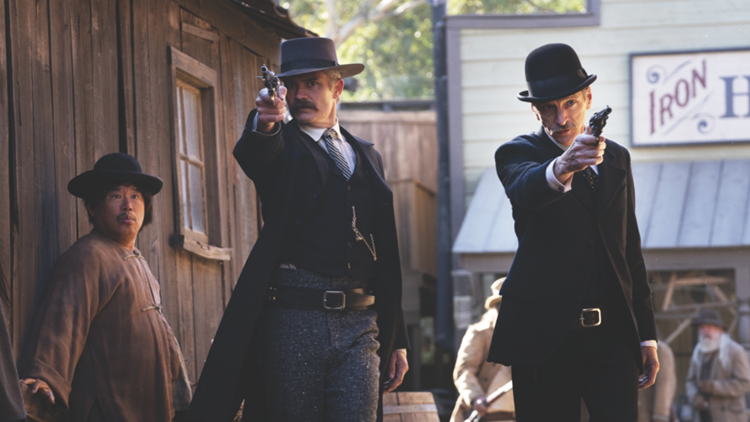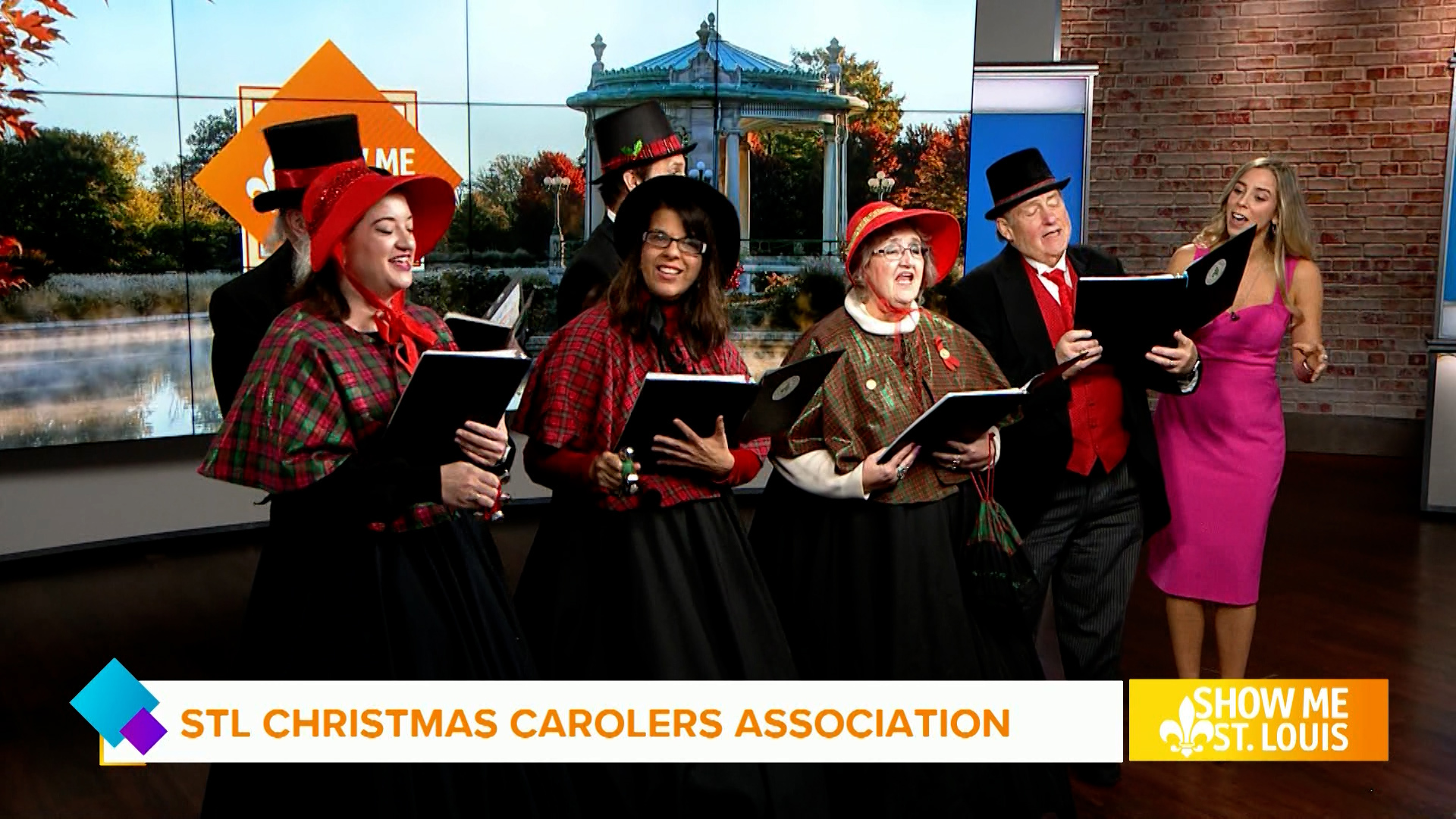ST. LOUIS — It is my belief that all human beings start as good souls at the moment of birth but are equally capable of breaking bad. There’re three needs in life: finding out who you are, why you are here, and if you can handle it. I think David Milch wondered the same thing when he wrote the HBO series, and now, "Deadwood: The Movie."
In this town, you are guilty until proven innocent or dead. All you will see here are bars, homes, and brothels that are comprised of the strongest-looking lumber. I'd almost call it, Livewood. Beautifully shiny and stout, it holds up the environments of which the characters live and intersect. Now, the characters are the opposite of this strong and shiny wood; they are all battling something inside their souls, pushing against the darkness or the realization that comes with the dark. A realization that they could be dead after all. Deadwood indeed.
Milch's series always made me think and dig deep as I downloaded the 36 episodes over the course of two weeks. The long-winded speeches, depraved settings and characters, and overall mischief commands one to look within or squint for the meaning. The action kept the drama honest, but the tone was always unique and slow-moving.
The movie, released earlier this month 13 years after the show went off the air, wraps the story up in a way that is equal parts powerful and satisfying. A true master stroke from Milch, an unapologetic writer and storyteller.
The movie kicks off with the wild Calamity Jane (Robin Weigert as boisterous as ever), singing atop her horse as she rides back into Deadwood, which is celebrating its statehood in 1889, ten years after the events of the show wrapped up.
Seth Bullock (Timothy Olyphant), the former noble sheriff with a violent streak, is now U.S. Marshall, patrolling the town while the saloon owner, and town baron, Al Swearengen (Ian McShane), sits in decaying health yet steady power. For me, the show has always spun around these two guys. Men who saw the worst in each other and couldn't convince the other that it was real. They were different, but the same in more ways than they would like to sign on with a pen. A leader and an influencer working around the law, or as Bullock says, "interpreting" it.
When George Hearst, who turned the screws of Bullock and Swearengen, along with Molly Parker's Alma Ellsworth, back in Season 2 and 3, returns to town, a sinister vibe returns. This puts everyone on tilt, because Heart, now a Senator with some more power, has a plan to set in motion, and it will affect all the primary parties in one way or another.
Hearst is the worst in Bullock's eyes, an up on high power-player who orders kills and steals land with more consequence than mere dollar bills. To Swearengen, he's simply in the way and clogging his way of life. Enter Charlie Utter (the selfless Dayton Callie) into the equation, along with a piece of vital land, and the plot takes off.
Here's what I loved about this sensational movie: the performances, the pace, and the overall power of individual moments.
First, the acting. Olyphant has noted in recent interviews that he wasn't as good of an actor back during the show, but that he's more than up to the task in the film. While I think he was solid back in 2006, the actor has grown exponentially as a performer, and he owns this film. He's always had the Eastwood swagger, but now he's tapped into the remorseful power of the western legend. Aged and weathered, Olyphant has the best scenes, moments, and the largest portion of the steak here to chew on.
Bullock is a guy constantly at war with himself, trying to find the road that doesn't lead to more bloodshed, but making peace with it at the same time. Olyphant has a few key moments, one at a funeral and another near the end as a man recounts a memory to him, that carry so much confidence and restraint. He's right. The older actor is indeed the better one.
McShane exploded onto the Hollywood scene with Swearengen, an unapologetic cusser with a need to impose his will. While he definitely lives on the darker end of the playground, there's a coda that is defined by decency and principle that keeps him from becoming a true monster. His limitless love and protection for Trixie (Paula Malcomson), and his loyalty to his men, Dan (W. Earl Brown) and Johnny (Sean Bridges). I couldn't imagine anyone else embodying this role like McShane, who delivers Milch's dialogue as if they share the same brain.
Gerald McRaney is perfectly suited for Hearst's wrath, mixing malevolence and anger into a soul that spites for sport. Anna Gunn, Brad Dourif, Leon Rippy, and William Sanderson are all solid in their roles. Parker and Malcomson got better with each season, but they thrive here. John Hawkes is so good as Sol Star. I missed the late Powers Boothe's Cy Tolliver.
The pacing of the film achieves a path that the series never could fully grasp. Milch's writing always made for cruise control and not speeding, but in his nearly two-hour finale, he encapsulates the soul of the series. He delivers the message with force, showing his intent to look deep into the darkness of the human soul for refuge from real life. It is true that the majority of these Deadwood characters and this town existed, but Milch took liberties with their path. He took a familiar town and repainted it. I call his work rugged eloquence.
Everyone battles something in life, some fights being quiet and others loud. Bullock is fighting the urge to stay noble. Swearengen embraces the devil but doesn't let him get too close. With Trixie, it's self-doubt, a constant urge to worry. Alma can't have what she wants but tries to do good with her fortune. Everyone is breaking bad, bending without breaking.
The characters are Milch and he is them, completely. Someone who wasn't going to do what more conventional storytellers would do or cave for a network's image. When HBO asked him to do a shortened fourth season back in 2006, he balked. Over time, when the time came to place a bow on his tale, he did it his way. No rush, straight push. It's this patience that produces signature moments throughout this triumphant movie. The work of a guy completely in control of his destiny and ability.
Here's the thing. You can watch Deadwood: The Movie without watching the series. The new tale is isolated and easy to follow. Daniel Minahan's direction is assured and wise. Granted, it's better to have spent the time with these characters, but you can crash the party without being lost. Choose your course, but don't pass this story up.
You simply don't see westerns like this anymore. They don't exist or can't reach the end of production and light of distribution. They are coated in commercial fat and superficial gloat. What Milch has done here is special: a satisfying and powerful conclusion that doesn't have false note in its bones-without sacrificing its soul in the process.
I'll take a few more trips through Deadwood: The Movie. It's one heck of a finale.



